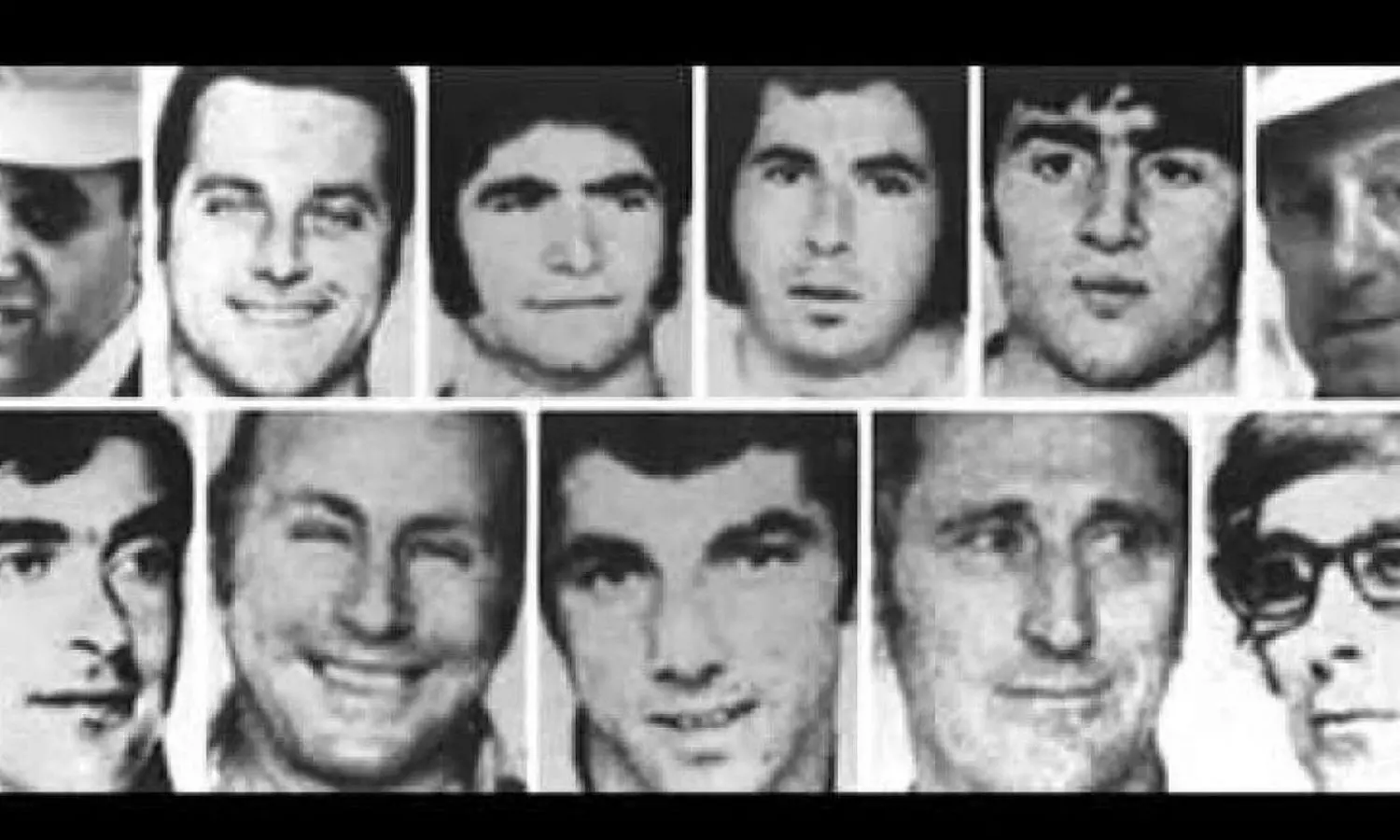Olympics
1972 Munich Olympics attack victims' families to boycott German ceremony
The families of 11 Israeli athletes killed by Palestinian attackers at the 1972 Summer Olympics in Munich will not attend a 50-year anniversary ceremony organized by German authorities.

1972 Munich Attack victims (Source: The Times of Israel)
The families of 11 Israeli athletes killed by Palestinian attackers at the 1972 Summer Olympics in Munich will not attend a 50-year anniversary ceremony organized by German authorities, saying they deserve more compensation and a fuller reckoning of the tragedy.
The decision announced Thursday underscores a lingering point of friction between the two countries that have built strong ties despite the enduring legacy of the Nazi Holocaust, in which 6 million Jews were murdered during World War II.
Members of the Palestinian group Black September broke into the Olympic Village, killed two athletes from Israel's national team and took nine more hostage on Sept. 5, 1972. The attackers hoped to force the release of Palestinian prisoners held by Israel as well as two left-wing extremists in West German jails. All nine hostages and a West German police officer died during a rescue attempt by German forces.
Relatives of the athletes accuse Germany of failing to secure the Olympic Village, refusing Israeli help and then botching the rescue operation.
"Fifty years of abuse, lies, humiliation and dismissals by the German Government, and by the Bavarian authorities in particular, are really too much for us," the group of families wrote in a letter to Bavarian authorities, who are organizing the Sept. 5 memorial event.
They said that while German President Frank-Walter Steinmeier accepted their demands for a public apology and the opening of archives with more information about the attack, the amount of compensation offered by Germany was "an insult."
Ankie Spitzer, the widow of Andre Spitzer, a fencing coach who was among those killed, said the families expected compensation according to international standards governing terror attacks.
"I was 26 when this happened in Munich. I'm 76 now. I don't need a diamond ring," she told The Associated Press.
She said the families want "fair and just compensation," especially for the 14 people who lost parents in the attack and have lived in its shadow for a half century.
"If they don't want to come close to that, not even close, with their humiliating offer, then have your ceremonies, but we will not be there," Spitzer said.
She said the entire Israeli delegation of some 200 people, including Olympic athletes, would stay home. There was no immediate comment from German officials.
Immediately after the attack, Germany made payments to relatives of the victims amounting to about 4.19 million marks (about 2 million euros, or $2.09 million), according to the Interior Ministry.
In 2002, the surviving relatives received an additional 3 million euros, Germany's dpa news agency reported. Germany's Interior Ministry said last month it was holding talks with the relatives and planned to offer further payments to the families. German media say Germany has offered 10 million euros to the families, which would include the payments already made.
The government has not publicly revealed how much money it has offered. A claim for compensation payments amounting to around 40 million marks cited massive errors in the police operation, but it was dismissed because of the statute of limitations.
